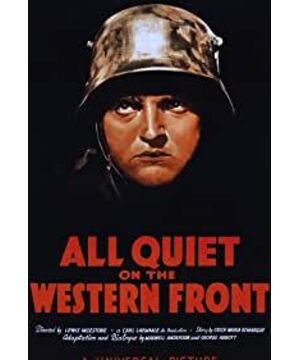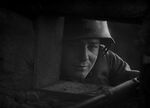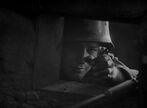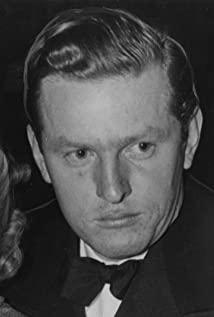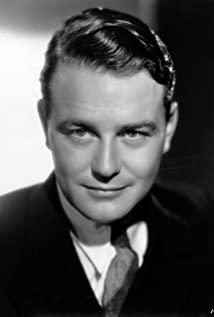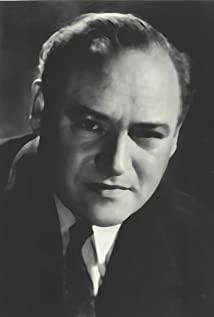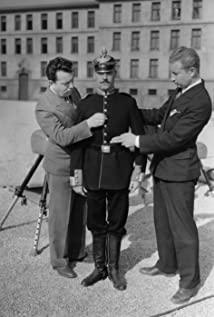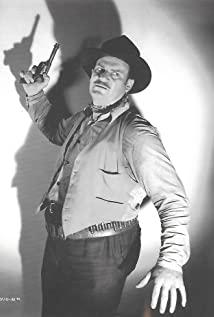This film is adapted from a novel of the same name by a German journalist, telling the story of a group of German youths who were encouraged to join the war during World War I, and faced the cruel frontline from fear to numbness to disgust to despair. It's great, not only because it was possible to have such a large-scale production (more than 1 million US dollars, more than 2,000 actors) when the fledgling had no special effects, but also because it was able to have such depth and strength in that era when the Nazis were in chaos. anti-war thinking. The film was banned in Germany and Italy for more than a decade, which shows that it has exposed the sore spot of the demagogues and conspirators.
There are many symbolic scenes in the film: the exaggerated professor who used chauvinism to encourage students to serve the country, the young man who was inspired to throw away his textbooks and fell into a carnival, the postman who was still in a good mood the day before and was promoted to an officer the next day ( Later, I really went to the battlefield and became insane), and when I arrived at the front line, I was still looking for a new recruit who was looking for a restaurant to buy food with money. The first time I saw a dead person, I had nightmares, the first time I saw a friend die, and I had a nervous breakdown. After the first murder, I was in a hurry to find People talk about the meaning of war around the lake after the baptism of artillery fire, say to the enemy who was stabbed by himself I don't want you to die, please forgive me, the friend on my back is dead but I don't know that I still talk to him, and Finally, on a sunny day, the protagonist Paul (the name of the novel comes from people's records of the war on that day - All quiet on the Western Front) died in order to catch butterflies (symbolizing freedom and beauty). Yes, many of the shots seem exaggerated and contrived now. But the world needs such a straightforward but not vulgar, profound but not esoteric movie, always reminding people of the horror of war and the horror of incitement.
In addition, there are several unforgettable details: several changes of owners of a pair of boots show the cruel fact that boots outlive people; Paul returns to his hometown to find that people are still fanatical about the war, but he tells the truth of the battlefield but He was called a coward by his juniors; at the end, the confused and confused faces of young people when they first entered the battlefield were reproduced. Only the middle of the bar orgy and the one-night stand with a French woman are a little sluggish. The director probably wanted to re-emphasize that the soldiers on the battlefield were just some immature young people in private, but it seemed a bit long.
It is admirable for Universal to be able to make such a big-budget film in the months following the stock market crash of 1929. Their big gamble took the plunge: they won their first Best Picture Oscar, and years later they were listed by the National Film Registry. This is the first time a best picture director has won best director, but this is not the first time Lewis Milestone has won — he won best director for comedy at the first Oscar two years ago. Later, the award was withdrawn (merged with the drama category), and he became the only one to win the award and the first best director to score a brace. By the way, the hand that caught the butterfly at the end was actually his; because it was already at the editing stage, the actors were all dismissed, so the director himself went into battle.
View more about All Quiet on the Western Front reviews


